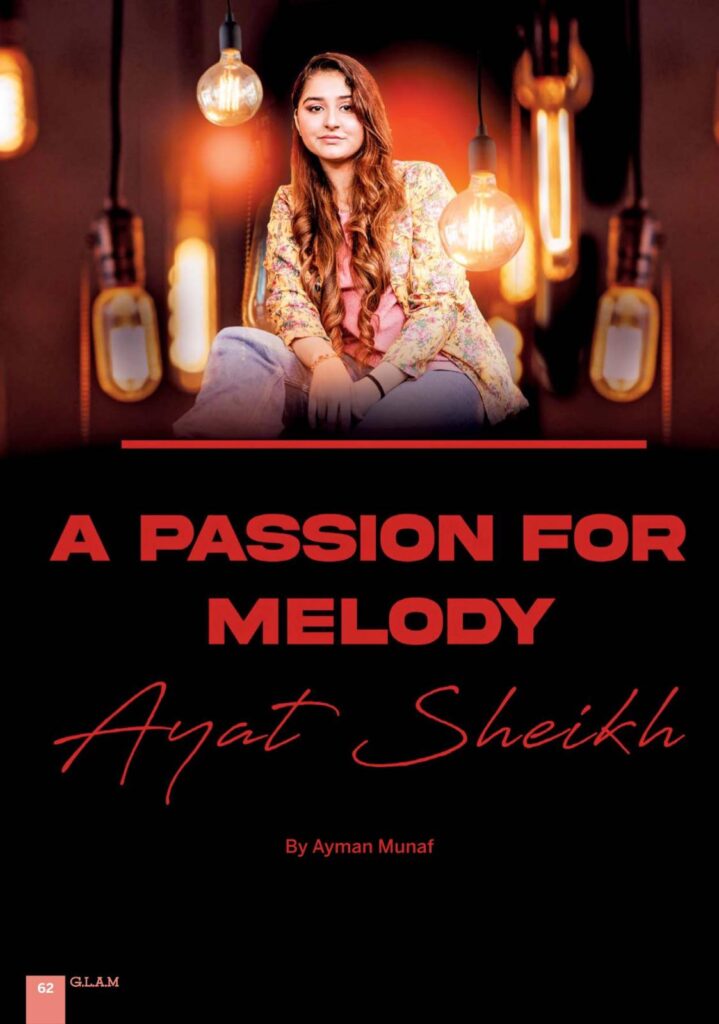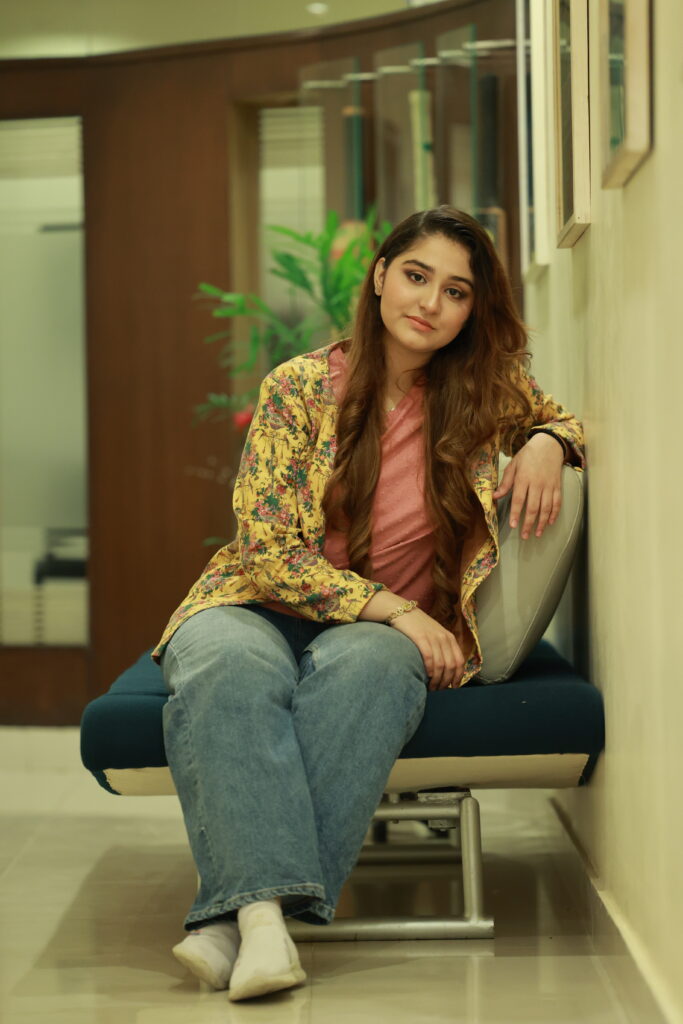In Tune
A Passion for Melody: Ayat Sheikh
By Ayman Munaf

In the world of Pakistani music, where each voice brings its own shade of emotion and storytelling, at just age nineteen Ayat has carved a place for herself as a soulful and introspective artist, blending emotion and depth into every note she sings. Her journey began at the tender age of eight, singing in school tableaux and the audience’s applause sparked her love for music. Her family’s unwavering support and their encouragement nurtured her passion and what started as a child’s love for singing transformed over time into a deep-rooted dedication to her talent. Today, Ayat is known for her private gigs, concerts and studio projects each one a testament to her dedication and talent.
Ayat’s first major breakthrough came a year back with her rendition of ‘Mora Saiyaan’ for the film ‘Teri Meri Kahaniyaan.’ “The film had three different stories, and my song was part of the second one, a story about a singer. Watching that scene on the big screen with my family, knowing it was my voice, was surreal. I felt butterflies in my stomach, and I even teared up out of happiness. It was a moment of pride and emotion,” she recalls. One of her most challenging experiences with ‘Mora Saiyaan,’ was singing in Punjabi as it wasn’t her native tongue. With guidance from her father and music director Jawad Hyder, she overcame the language barrier, mastering the song in just two hours. This accomplishment solidified her belief that with passion and determination, no obstacle is insurmountable. Emotion, she believes, is a critical component in music, especially in songs that accompany powerful narratives. Ayat acknowledges that it’s an ongoing journey of learning, committed to improving at every step. She approaches each project with openness, learning to communicate the right emotions with every performance.
For Ayat, succeeding in Pakistan’s music industry requires more than just vocal talent. Quick memorization and the ability to adapt melodies are qualities she views as essential, and she’s diligently working to hone these skills. Her musical identity, however, is rooted in a more soulful, relaxed style, contrasting with the energetic ‘dhoom-dharaka’ music often popular in the industry. “I resonate most with slower, relaxing music,” she says, emphasizing her love for calm and soothing melodies. As a fan of soulful melodies, she finds inspiration in the unique style of her favourite singer, Sunidhi Chauhan, whose voice she deeply admires. One song holds a special place in her heart—Lae Dooba by Sunidhi Chauhan, which she has re-sung. Ayat admits that she doesn’t always enjoy hearing her recorded voice, a common sentiment among artists, but she accepts it as part of her growth journey.
Criticism, especially in the digital age, is something she navigates with grace. Ayat keeps her focus on positivity, avoiding the distractions of hateful comments that could detract from her growth. In this era of digital transformation, platforms like YouTube have opened up new avenues for artists, and the young singer has embraced this change, recently launching her own channel. She views digital platforms as a bridge, connecting artists directly with their audience and offering invaluable exposure.
Looking ahead, Ayat has set her sights on one of Pakistan’s most celebrated platforms: Coke Studio. Performing there is a dream, a goal she hopes to achieve as she continues to develop her artistry. Behind the scenes, she keeps her voice in top condition with a dedicated regimen of vocal exercises—sargams, paltay, and samraags—practiced diligently each morning and night.
Reflecting on the industry she loves, Ayat expresses a desire to see a more merit-based environment. “I’d want to address nepotism,” she says, advocating for equal opportunities for all artists based on talent alone.
In a landscape rich with evolving sounds and stories, Ayat is a breath of fresh air, a singer with a heartfelt commitment to her craft and a vision for the future. Through each note she brings a touch of soul, creating a unique place for herself in the world of Pakistani music.

